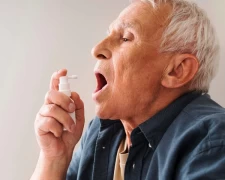
A Challenging Journey in the Respiratory System: Asthma
- A Challenging Journey in the Respiratory System: Asthma
- What is Asthma?
- Why Does Asthma Occur?
- What Are the Symptoms of Asthma?
- What Are the Treatment Methods for Asthma?
What is Asthma?
Asthma is a chronic respiratory disease that affects the airways. It leads to difficulties in breathing due to the narrowing, swelling, and increased mucus production in the airways. This narrowing and swelling make it harder for air to enter the lungs and, consequently, breathing becomes challenging.
Why Does Asthma Occur?
The exact cause of asthma is not fully understood, but it is believed to develop due to the interaction of genetic predisposition and environmental factors. The main contributing factors to the development of asthma include:
- Genetic Predisposition: Individuals with a family history of asthma have a higher risk of developing asthma. Multiple genes are thought to play a role in the development of asthma. Genetic factors may contribute to increasing the sensitivity of the airways and susceptibility to inflammation.
- Exposure to Allergens: Allergens are substances that can trigger asthma symptoms. Exposure to allergens such as pollen, dust mites, mold spores, pet dander, and insect droppings can trigger an asthma attack or worsen symptoms.
- Respiratory Infections: Common cold or other respiratory infections can cause an asthma attack or worsen asthma symptoms. Respiratory infections can lead to further inflammation of the airways in individuals with asthma.
- Air Pollution and Climate Conditions: Air pollution and adverse weather conditions can trigger asthma symptoms. Air pollutants such as ozone, nitrogen dioxide, and fine particulate matter can cause narrowing of the airways in people with asthma.
- Cigarette Smoke: Active or passive exposure to cigarette smoke increases the risk of developing asthma. Cigarette smoke can irritate the airways and cause inflammation.
- Exercise: Some asthma patients may experience symptoms, particularly during exercise. Exercise can lead to narrowing of the airways and exacerbate asthma symptoms. However, regular exercise and taking appropriate precautions can help manage asthma.
As multiple factors are involved in the development of asthma, different individuals may respond to different triggers. To determine the causes of asthma and manage the symptoms, it is essential for patients to be evaluated by a Pulmonologist (Chest Diseases Specialist) and establish a treatment plan.

What Are the Symptoms of Asthma?
Asthma symptoms can vary from person to person and depend on the severity of the disease. However, common symptoms experienced by asthma patients include:
- Shortness of Breath: Asthma patients may experience difficulty breathing, especially during exercise, exposure to respiratory infections, or environmental triggers. Shortness of breath occurs due to narrowing of the airways and inflammation.
- Coughing: Frequent and chronic coughing is common in asthma patients. Coughing may be more pronounced at night or in the early morning. It can worsen, especially when exposed to allergens or high levels of air pollution.
- Wheezing: Wheezing, a high-pitched whistling sound during breathing, may be heard in asthma patients. This sound results from the narrowing of the airways and the obstruction of airflow.
- Chest Tightness: During an asthma attack, patients may experience a sensation of tightness or pressure in the chest. This symptom occurs due to airway inflammation and constriction.
- Nocturnal Symptoms: Asthma patients may experience "nighttime asthma," where symptoms worsen during the night or early morning. During this time, the airways narrow, and patients may struggle to breathe when waking up.
Asthma symptoms can worsen when the disease is not controlled or when exposed to triggering factors. The severity of symptoms may vary among individuals, with some experiencing mild symptoms and others facing more severe ones. Asthma symptoms can be managed with regular follow-ups and appropriate treatment. It is crucial for patients to follow preventive measures and collaborate with their doctors.
What Are the Treatment Methods for Asthma?
Treatment for asthma is personalized based on the severity of the disease, frequency of symptoms, and the patient's age. The primary goals of asthma treatment are:
- Achieving Asthma Control: The treatment aims to keep asthma symptoms to a minimum and reduce the risk of asthma attacks.
- Reducing Airway Inflammation: Asthma develops due to inflammation and narrowing of the airways. Treatment aims to reduce airway inflammation and keep the airways open.
The treatment methods for asthma include:
- Long-Term Control Medications:
- Inhalers: Inhalers are the most commonly used medications for asthma treatment. Inhalers containing corticosteroids reduce airway inflammation, thus controlling asthma symptoms.
- Long-Acting Bronchodilators: These medications widen the airways and facilitate airflow, thus reducing asthma symptoms.
- Quick-Relief Medications:
- Short-Acting Bronchodilators: These medications are used to quickly relieve asthma symptoms during an asthma attack. They rapidly widen the airways, making breathing easier.
- Respiratory Exercises: Asthma patients are taught respiratory exercises that help strengthen the airways and make breathing easier.
- Avoiding Triggers: Patients are advised to avoid allergens, air pollution, and cigarette smoke, as these can trigger asthma symptoms.
- Asthma Action Plan: Doctors provide asthma patients with an action plan that explains how to manage asthma symptoms during emergencies or when symptoms worsen.
Asthma treatment is regularly reviewed and adjusted as needed based on the patient's condition. Regular communication with the doctor, adherence to prescribed medications, and avoidance of triggers are crucial for effectively managing asthma symptoms, allowing patients to lead more comfortable lives.




